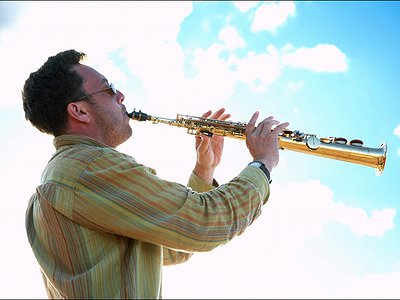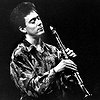When did you start composing - and what or who were your early passions and influences?
When I was about seven years old I imagined writing a vast opera called “The Spring.” I think I only got as far as the opening theme, which has been stuck in my head ever since. Sometime in high school, when I didn’t make the cut to be in the orchestra, I went in the jazz band instead, and that changed everything. Around the same time I discovered John Cage, Ornette Coleman, and Laurie Anderson. All three have influenced me ever since.
What do you personally consider to be incisive moments in your work and/or career?
Playing live with a laughing thrush at the National Aviary was the moment I realized it could be interesting to play live with birds. Another moment was making a record with the great pianist Marilyn Crispell on our own in Woodstock, and sending it to ECM Records to have them first reject it, then later change their mind and decide to release it.
What are currently your main compositional challenges?
To get beyond the limits of improvisation. Even though I create mostly through improvisation, sometimes I feel I could get somewhere deeper if I planned things out more. But I’m not sure.
What do you usually start with when composing?
I think about what my music thus far lacks! Then I search for a sound and try to get fixated on it.
How do you see the relationship between timbre and composition?
My new book on insect music is all about that; it comes out next spring. I’m interested in how deeper listening to the natural world allows us to take a wider range of sounds seriously as musical material. All of nature’s musics—from birds to whales to crickets to rushing water—becomes ever more comprehensible and beautiful as we expand our ideas of what music can be.
What do improvisation and composition mean to you and what, to you, are their respective merits?
That’s my life’s question, and my earlier book Sudden Music is all about that. What I like about improvisation is that I can create things I cannot explain; that it is simultaneously created in the moment and also the result of a whole lifetime of practice and questioning.
Do you feel it important that an audience is able to deduct the processes and ideas behind a work purely on the basis of the music? If so, how do you make them transparent?
A good question! The audience should not need a long artist’s statement or program note to understand what’s going on. The gist of a piece should be accessible on first hearing; if it’s deep enough there should be more to the story, enough to make you want to listen again and again, where each time you discover something new.



